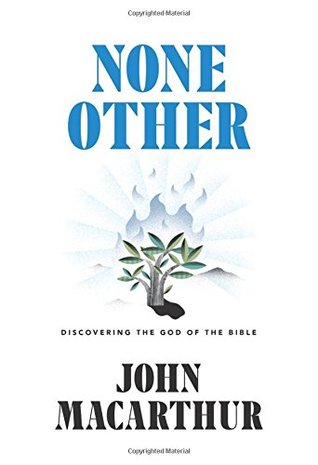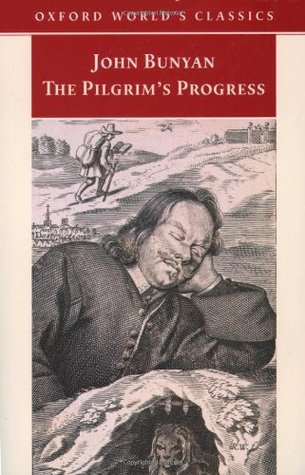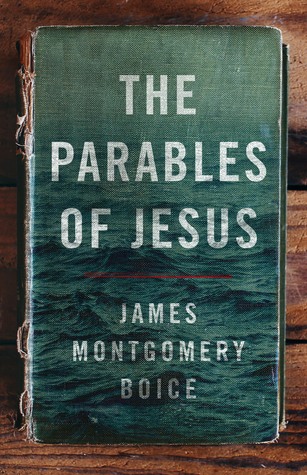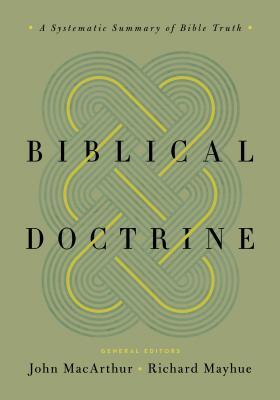No One Hears But Him. Taylor Caldwell. 1966/2017. Open Road Media. 212 pages. [Source: Review copy]
First sentence:
Many years have passed since old John Godfrey, the mysterious lawyer, built his Sanctuary in a great city for the hopeless, the grieving, the despairing, the churchless, the cynical, the defeated, the dying and the bereaved, the betrayers of men and the betrayed, the burdened and the old, the young and the lost. Here, in the Sanctuary, waits the Man who Listens, who waits and listens endlessly and patiently to the anguished stories told to him in a blue and marble silence. There is no experience that he has never heard before. There is no grief with which he is not familiar. There is no crime against God or man that he has not seen with his own eyes. He has heard the blasphemies of the self-congratulatory. He has heard the cry of all parents and all children. He has listened to all prayers and all excuses. The experiences of all men are his own. Nothing disturbs him except hatred and violence. He knows them, too.
Premise/plot: No One Hears But Him is a collection of twelve short stories. Each story is a 'soul'. Readers hear from twelve distinct voices. At some point in each story, the character goes to the Sanctuary, waits his or her turn, and goes into the room to speak with the Man Who Listens. Most choose to press the button to meet this Listener face-to-face, but, not all do. Each story ends with hope; all stories are tied together by hope. The stories can be dark, gritty, pessimistic, angry, doubting, critical, questioning, sarcastic--essentially anything and everything under the sun but the connection each makes with THE MAN WHO LISTENS brings hope.
In the preface or the introduction of this one, the author makes a startling statement:
This book is deliberately designed to anger many.
Soul One: The Watchman (Fred Carlson, disgruntled cop)
Fred Carlson had had an excellent lunch with his prospective employers. They had parted from him with expressions of great cordiality, for they respected good and dedicated and intelligent men.
Soul Two: The Sadducee (Dr. Edwin Pfeiffer, unbelieving minister)
“Is that all you can tell me?” asked the desolate woman. What is it you want me to say to you? the man commented to himself. Do you want old-fashioned and sentimental cant in which I don’t believe and which is absurd in these enlightened and sophisticated days? I am no parson, dear lady, full of soothing platitudes and maudlin aphorisms. I am a teacher, a leader, a guide to my congregation. Do you expect me to soothe you with evangelical hysteria or invoke some tribal god?
Soul Three: The Afflicted (Francis Stoddard, contemplating murderer)
“I didn’t come here for counsel,” said Francis Stoddard to the hidden man behind the blue curtain. “I’ve had plenty of that stupidity. When I lost my business fifteen years ago, you should have heard all my self-appointed advisers! I should have listened to them; I shouldn’t have done this, I should have done that, if I’d only watched my step here, or been plenty smart there—it wouldn’t have happened to me. Then when I made my comeback, they were almost offended. I hadn’t asked their advice; I’d done it all myself. When I was down, they could feel superior and pity me—and avoid me, too, afraid I’d ask them for money.
Soul Four: The Ostracized (Paul Winsor, black man who wants to first and foremost be seen as a man)
He supposed they had been offended when he had left the lunch so abruptly. He had ended his talk on a note of despair, but they had not heard the despair. Of that he was positive. They never heard anything but their self-congratulation and the applause of their colleagues for their “tolerance” and “liberalism.” When he had quoted Seneca and had demanded “Am I not a man as you are a man?” they had only nodded their heads solemnly and had looked at each other with grave eyes of assent. But they did not know what he had meant. He had meant it for them. They had not known or were too stupid and self-engrossed to know.
Soul Five: Only A Kid (Johnnie Martin, a spoiled brat with many ex-wives and many children who won't grow up)
He came smiling rosily into the waiting room, walking with his usual boyish insolence and waiting for every eye to turn on him indulgently and every woman’s eye to warm. But no one seemed to know he had entered.
Soul Six: The Senior Citizen (Bernard Carstairs, does NOT want to retire)
The mauve-blue twilight lay over the snowy city and the street lamps began to bloom like faint golden balls.
Soul Seven: The Shepherd (Mr. Henry Blackstone, a minister who believes but is losing his congregation because he's not keeping up with the world)
The month of May, the flowering month, the month of the Queen of Heaven. Isn’t that what his friend, Father Moran, called it? Yes. A beautiful month, full of light and promise, gold and green and blossoming, with the heady scent of jubilation and rejoicing. But when did I feel that last? asked the Reverend Mr. Henry Blackstone of himself. I am as old as death, honestly, in these days, though by modern calculation I am only sixty. I’m not with it, as my younger parishioners would say. No, I’m not “with it.” It’s strange; I was always such an optimistic man until the last few years. Now I feel totally despondent; I walk despondently; I think despondently. Who is wrong, the world or I? Am I of the past, hopelessly? I’m so damned confused, so helpless.
Soul Eight: The Husbandman (Adam Faith, farmer about to lose the farm)
“Well, hello, Parson,” said the old man with gravity as he faced the calm blue curtain of the alcove. “You are a parson, ain’t you? That’s what everybody says, anyhow. You listen to folks’ troubles and then you tell them what to do. That’s real kind of you. Didn’t know there was that kind left in the world, no sir. Everybody loving each other and nobody loving anybody: that’s what goes on now. Like the patriotism you read about in the newspapers and nobody’s patriotic, seems like. Why, there was a time, I remember, if folks had trouble, even in the city, everybody’d come with baked goods and fruit and maybe a roast chicken, and there’d be real sympathy. Now it’s all fake, newspapers full of brotherly love and the rights of everybody, and people talkin’ and the pastors telling you, in their pulpits, to do good to everybody, ’specially people you don’t know in foreign parts, and nobody gives a damn about their next-door neighbor. Easy to be sympathetic about people a thousand miles away or more; costs you nothin’ to roll your eyes and make your voice all deep and soft. But gettin’ off your butt and doin’ something about the people next door, with your own money and your own work: Oh, no. That doesn’t mean anythin’ now. It isn’t havin’ a sense—what do they call it with their mealy-mouths?—of world-wide responsibility.
Soul Nine: The Richest Man in Town (John Service, Has everything, satisfied with nothing. Can't decide if he's more angry than bored or more bored than angry)
It was enough to make, a man kill himself. He, John Service, had been seriously considering this for over six months. Or was it longer? He could not remember. He was bored to death, bored by pleasantness, smoothness, affluence, laughter, cocktail parties, wood-paneled offices, amiable employees, serene wife, well-established children, rosy fat grandchildren, summer homes, winters in Florida or the Caribbean, or in those exotic out-of-the-way places in Mexico and Central America, or in Paris, or London or Madrid or Mallorca. The world was really small; one finally ran out of places to visit and explore. Besides, everything had become Americanized and sterile and cellophaned and sanitary, with excellent bathrooms, fast jets, gourmet meals, and tender stewardesses. Sweet and Lovely. As he waited in the quiet room John Service hummed that old popular song from his boyhood. It rang in his brain now, not liltingly, but with a kind of horror and terror, mocking, a refrain of demons, a refrain from the very black pits of hell. Sweet and lovely. An excellent epitaph for a world—and especially for a human life.
Soul Ten: The New Breed (Lucy Marner, young and desperate)
“Where’re you going, Lucy?” asked a young girl of her companion as they moved together to the parking lot of the campus. “Well, I thought I’d just run around—someplace,” said Lucy Marner. Her friend peered at her inquisitively. “Something wrong? You haven’t been looking on the ball for a couple of months.” The friend giggled. “Nothing wrong, uh?” Lucy flushed. “No,” she said in a short tone. She did not invite her friend to accompany her. “But I—well, I’m going to the doctor for the early summer check-up. No use waiting until the end of the semester, when things begin. ’Bye now, Sandy.” She walked very fast to the parking lot. She was usually proud of her smart white convertible and would glance over it to be sure no hot-rod had marred its bright finish. But today she merely threw herself onto the red leather seat and roared off the campus. Friends, young men and women, hailed her but she did not reply for she did not hear them.
Soul Eleven: The Dream-Spinner (Maude Finch, past-her-prime liar)
The golden spring day was no fresher than the air in the white and blue waiting room.
Soul Twelve: The Adversary and the Man Who Listens (a show-down between the devil and Christ)
The waiting room was almost filled when he entered, but no one seemed to see him except for a very young girl with mad eyes. He became aware that she saw him and he stopped, and it was as if a dark shadow had fallen over her distraught face. She most certainly saw him and he half-smiled. He knew at once what troubled her and what had caused that dilated appearance in her pupils, and the long, fixed stare. He knew her very well. There was no pity in him, no regret, but only contempt. Weakling. Wretch. Contemptible animal. She was only eighteen, he recalled, but her soul was shriveled within her like a bud that had withered before it had opened. Anathema, anathema, he thought. It was no triumph to him that he had brought down that meager soul so easily. She had needed little tempting! “Emily?” he said, very softly.
My thoughts: I loved, loved, LOVED this one. I thought the stories were compelling and relevant. Yes, the stories are perhaps a bit dated here and there. But I'm of the opinion that truth is never out of date even if it it seen as out of style. Caldwell meant the book to be critical of society in 1966, and, today's readers should probably still feel offended by the gospel truths on display in this one.
Favorite quotes:
When somebody tells me they’re awful happy, I think, ‘You’re either a liar or a fool.’ ’T’ain’t possible to live in this world and be happy, after you’re about three years old.”
He shook his head. “I’m remembering something. When it was a choice between you and a criminal the people chose the criminal. They always do; it never fails. But you didn’t hold that against them. You’ve been watching all through the night, and you’ll be on hand when the last night comes.”
We speak only of the world and never question the stars, for the world is all we know—and all we want to know. Our little bright corner is enough for us, and there we can sit and talk our blasphemous and urbane nonsense, and utter our words of peace in a world where there is no peace, and offer up well-rehearsed prayers which are empty of content, as we are empty of content. Who shall forgive us?”
“What is it that is so frightful in most men these days that they must pretend to ‘love’ others?” asked Paul. “Never was the world so loveless as it is now, so degraded, so full of hate. Yet, you can’t go anywhere but that you hear love, love, love. A steamy bath of it. A miasma. It is particularly smothering for my people. They are choking in it, especially in the North. But it isn’t really love, is it? It is hatred. It is the self-righteousness of the cruel Pharisee.”
No one has ever earned the right to leave the harvest.
“They never said you were like this—When I heard about you, they said you were a terrible person; it scared me; they said you were the Judge. I only heard about you a few times, so long ago I don’t remember, but I thought you’d hate me—all the lies and everything. They said you hated liars and hypocrites, and I guess I’ve been that all my life, and maybe it don’t mean anything to you that it was the only way I could live, lying like that to myself and everybody else, and pretending. After all, you are the Judge, and you’re terrible. That’s what they said, all those years ago, and it scared me.” She opened her eyes and the man was still regarding her with gentle suffering and love, and she began to weep again, but softly. “I see! You don’t hate me for what I did, do you? And all that I went through in my life—it wasn’t even all that as bad as one day of yours, was it? And you didn’t have anybody to talk to, either, did you? Oh, they listened to you, they sure did, but what good did it do? They didn’t believe you, but people believed me a little, and that’s something. They don’t even believe you now. “You didn’t have anyone to talk to except yourself. And God.” Her eyes suddenly shone with wonder and she sat upright. “That’s it, you had God to talk to! And so do I! That’s what you mean, isn’t it? I can talk to you, any time I want to, anywhere! If only I’d known a little more about you in the beginning. That’s what the real depriv—the real not-having—not having you in all those years. “But now I have you!” The wonder brightened on her face and the years left her and she was a child again, hoping. But this time the hope had verity and truth. “That’s what you’re trying to tell me, isn’t it, that I have you, and that if I have you you’ll always listen and help me, and that I mustn’t be afraid any longer.”
© Becky Laney of
Operation Actually Read Bible















